Home>diy>Building & Construction>How To Become A Construction Inspector
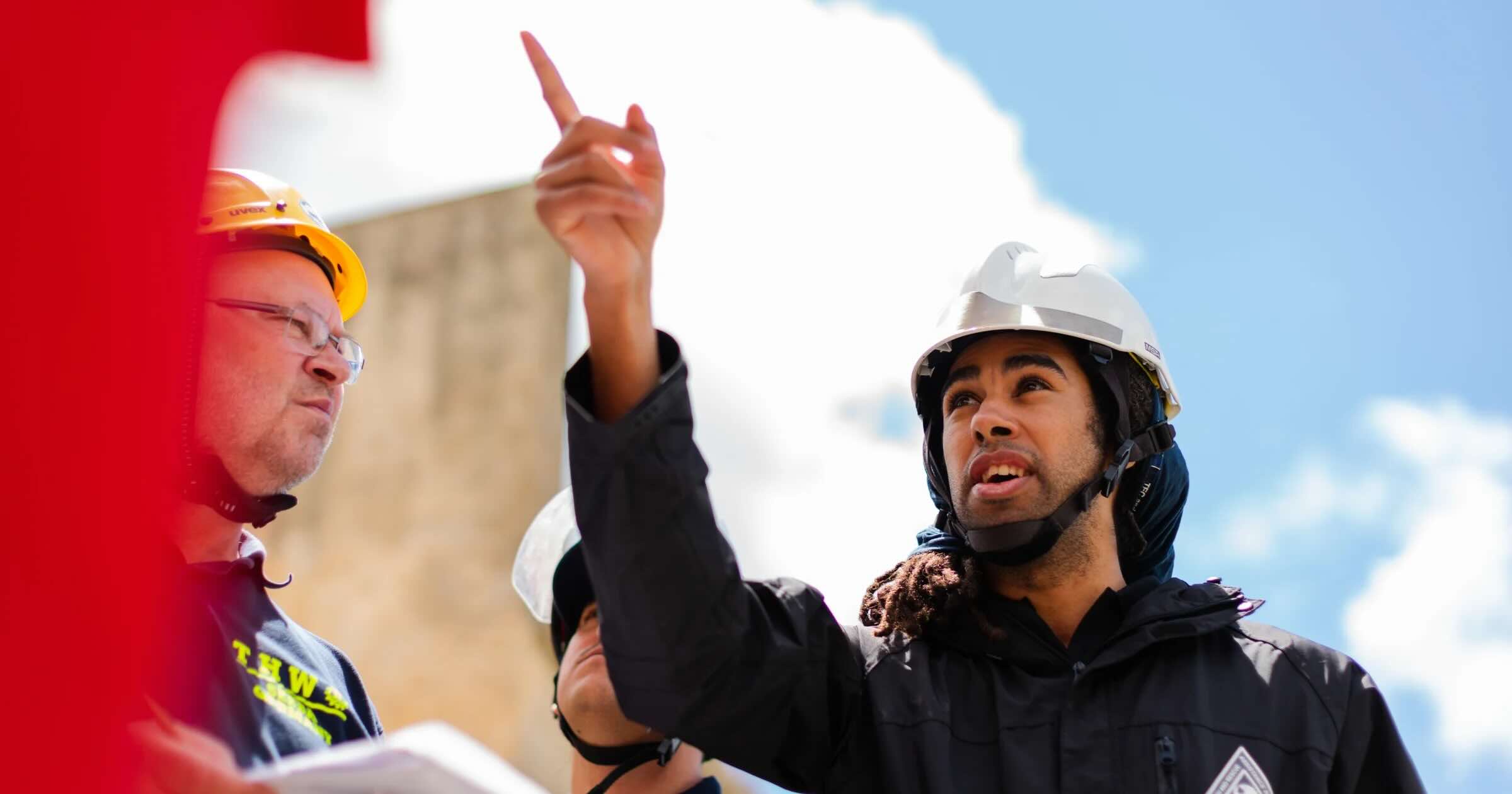

Building & Construction
How To Become A Construction Inspector
Modified: January 23, 2024
Learn the step-by-step process of how to become a construction inspector in the building construction industry. Gain insights and essential skills to excel in this rewarding career.
(Many of the links in this article redirect to a specific reviewed product. Your purchase of these products through affiliate links helps to generate commission for Storables.com, at no extra cost. Learn more)
Introduction
Welcome to the world of construction inspection! If you have a passion for building construction and a knack for attention to detail, becoming a construction inspector may be the perfect career path for you. Construction inspectors play a crucial role in ensuring that construction projects meet safety standards, adhere to codes and regulations, and maintain high-quality workmanship.
As a construction inspector, you will have the opportunity to work on a variety of projects, ranging from residential buildings to large-scale commercial developments. Your main objective will be to assess and evaluate the construction process, inspecting various elements of the project, and ensuring that everything is being carried out in compliance with the approved plans and specifications.
This article will provide you with an in-depth understanding of the educational requirements, necessary experience and skills, certification and licensing, and the job duties and responsibilities involved in becoming a construction inspector. We will also explore inspection techniques and tools used, construction codes and regulations, safety and quality control measures, as well as the importance of communication skills and the working environment you can expect as a construction inspector.
Whether you are just starting your career in the construction industry or looking to transition into a new role, this article will provide you with valuable insights and guidance on how to become a successful construction inspector.
So, let’s dive in and explore the exciting world of construction inspection!
Key Takeaways:
- Becoming a construction inspector requires a blend of formal education, practical experience, and continuous learning. Attention to detail, communication skills, and a commitment to upholding safety and quality standards are essential for success in this dynamic field.
- The role of a construction inspector offers diverse career advancement opportunities, from specialization to entrepreneurship. By staying updated on industry standards and embracing new challenges, individuals can carve out a rewarding and impactful career in the construction industry.
Read more: How To Become A Construction Draw Inspector
Educational Requirements
To become a construction inspector, a minimum educational requirement is typically a high school diploma or equivalent. However, many employers prefer candidates who have completed some post-secondary education in a related field, such as construction management, engineering, or architecture.
While a bachelor’s degree is not always mandatory, it can give you a competitive edge and open up greater opportunities for career advancement. A degree in construction management, civil engineering, or a related discipline can provide you with a solid foundation of knowledge in construction principles, project management, and building codes and regulations.
In addition to formal education, it is important to stay updated on industry trends and developments. Attending workshops, seminars, and conferences related to construction and building codes can help you expand your knowledge and stay abreast of new technologies and best practices.
Continuing education and professional development programs offered by organizations such as the International Code Council (ICC) and the National Association of Home Inspectors (NAHI) can also enhance your credentials and provide valuable networking opportunities.
While specific educational requirements may vary by employer and jurisdiction, the key is to have a solid understanding of construction principles, mathematics, blueprint reading, and building codes. Familiarity with construction materials and techniques will also be beneficial in performing inspections effectively.
Overall, a combination of formal education and practical experience in the construction industry will prepare you for a successful career as a construction inspector. By continuously expanding your knowledge and staying up to date with industry standards, you will improve your chances of landing a rewarding job in this field.
Experience and Skills
While formal education provides a foundation of knowledge, hands-on experience is equally important in becoming a skilled construction inspector. Employers typically require a certain amount of practical experience in the construction industry to ensure that you have a thorough understanding of construction processes and techniques.
Prior experience working in construction, such as in a trade or as a construction manager, can be highly advantageous when pursuing a career as a construction inspector. This experience allows you to develop a keen eye for detail and a deep understanding of the various stages of construction.
Some of the skills and qualities that are highly valued in construction inspectors include:
- Attention to Detail: As a construction inspector, you must have a meticulous eye for detail to identify any potential issues or deviations from the approved plans. The ability to spot even minor discrepancies can help ensure the safety and quality of the construction project.
- Construction Knowledge: A solid understanding of construction principles, materials, and techniques is crucial in assessing the quality of workmanship and identifying potential construction defects.
- Analytical Skills: Construction inspectors must be able to analyze complex information, interpret blueprints and specifications, and make informed decisions regarding compliance with building codes and regulations.
- Communication Skills: Effective communication is essential in this role. Construction inspectors need to clearly communicate their findings, both in written reports and through verbal discussions, to project stakeholders, including contractors, architects, and clients.
- Problem-Solving Abilities: Construction projects often present challenges and obstacles. As a construction inspector, you need the ability to think critically and come up with creative solutions to address issues that arise during the construction process.
- Time Management: The ability to manage time efficiently is crucial in the fast-paced construction industry. Construction inspectors need to coordinate their inspections with project timelines to ensure that inspections are carried out at the right stages of construction.
- Integrity: A strong sense of ethics and honesty is crucial in the role of a construction inspector. Upholding regulatory standards and ensuring the safety of the construction project should always be a top priority.
It is important to continue honing these skills and gaining practical experience through job rotations, apprenticeships, or working alongside experienced construction inspectors. This will allow you to develop a well-rounded skill set and gain the confidence needed to succeed in this field.
Certification and Licensing
In the field of construction inspection, certification and licensing play a significant role in establishing credibility and demonstrating your expertise. While specific requirements may vary by jurisdiction, obtaining relevant certifications and licenses is highly recommended to enhance your professional standing and increase your job prospects.
The International Code Council (ICC) offers a range of certifications that are widely recognized and respected in the construction industry. Some of the popular certifications include:
- Residential Building Inspector: This certification is focused on inspecting residential structures and ensuring compliance with building codes and regulations applicable to residential construction projects.
- Commercial Building Inspector: As a certified commercial building inspector, you will be qualified to inspect and assess the compliance of commercial buildings with relevant codes and regulations.
- Electrical Inspector: This certification is specific to electrical systems and ensures the safety and compliance of electrical installations in construction projects.
- Plumbing Inspector: A certification in plumbing inspection qualifies you to inspect plumbing systems in both residential and commercial buildings, ensuring proper installation and compliance with plumbing codes.
- Mechanical Inspector: This certification focuses on inspecting heating, ventilation, and air-conditioning (HVAC) systems, ensuring their efficiency, functionality, and adherence to applicable codes and standards.
In addition to ICC certifications, there may also be specific state or local requirements for licensing as a construction inspector. These requirements often include passing a licensing exam and fulfilling certain experience criteria. It’s important to research the specific regulations and licensing requirements in your area.
Continuing education is typically required to maintain these certifications and licenses. This ensures that construction inspectors stay updated on the latest building codes, regulations, and inspection techniques.
Obtaining relevant certifications and licenses demonstrates your commitment to professional development and instills confidence in employers and clients. It also provides you with a competitive advantage in the job market, as employers often prioritize candidates who hold recognized certifications and licenses.
Remember to check the requirements of your specific jurisdiction and explore the certifications and licenses that align with your career goals. Continuing education and staying informed on industry standards will help you maintain and expand your expertise as a construction inspector.
Job Duties and Responsibilities
As a construction inspector, your primary responsibility is to ensure that construction projects comply with building codes, regulations, and industry standards. You will be tasked with conducting thorough inspections at various stages of the construction process to verify that the work being done meets the approved plans and specifications. Let’s take a closer look at some of the key job duties and responsibilities of a construction inspector:
- Inspection and Evaluation: Conduct inspections to assess the quality of construction work, including structural components, electrical systems, plumbing, HVAC systems, and other building elements. This involves inspecting foundations, framing, roofing, insulation, and finishes to ensure compliance with applicable codes and regulations.
- Code Compliance: Determine whether the construction project adheres to local, state, and national building codes, zoning regulations, and other relevant standards. Identify any violations or deviations and provide recommendations for corrective actions.
- Documentation: Prepare detailed inspection reports, documenting findings, discrepancies, and recommendations. Maintain accurate records of inspection results, photographs, and any necessary documentation to support the compliance assessment.
- Collaboration and Communication: Communicate effectively with project stakeholders, including contractors, architects, engineers, and other professionals involved in the construction process. Provide guidance and interpretation of codes and regulations, explain inspection findings, and address any questions or concerns.
- Timely Inspections: Schedule inspections in coordination with the construction timeline to ensure that inspections are carried out at the appropriate stages of the project. This helps prevent delays and ensures that any issues are identified and addressed in a timely manner.
- Follow-up Inspections: Conduct follow-up inspections to verify that required corrections have been made and that any outstanding issues have been addressed. Ensure that the construction project meets safety and quality standards before final approval.
- Continuous Learning: Stay updated on the latest building codes, regulations, and industry best practices through ongoing training and professional development. This helps maintain your expertise as a construction inspector and ensures that you are familiar with the most current standards and requirements.
As a construction inspector, attention to detail, strong analytical skills, and effective communication are essential. By diligently carrying out your responsibilities, you play a crucial role in promoting safe and compliant construction practices and contribute to the overall quality of the built environment.
Keep in mind that the specific job duties and responsibilities of a construction inspector may vary depending on the type of project, the jurisdiction, and the employer’s requirements. However, regardless of these variations, the core purpose remains the same: ensuring that construction projects meet the necessary standards and comply with regulations and codes to provide safe and high-quality structures.
Read more: How To Become A Journeyman Construction
Inspection Techniques and Tools Used
As a construction inspector, you will employ a variety of inspection techniques and utilize specialized tools to assess the quality of construction work and ensure compliance with building codes and regulations. Here are some common inspection techniques and tools that you may use in your role:
- Visual Inspection: The most basic and widely used inspection technique is visual inspection. This involves observing the construction project with a keen eye to identify any visible defects, deviations, or potential issues that may affect safety or quality.
- Testing and Measurements: In addition to visual inspection, you may conduct tests and measurements to evaluate the functionality and performance of various building systems. This can include measuring electrical circuits, water pressure, air quality, and more.
- Non-Destructive Testing (NDT): NDT techniques are used to assess the structural integrity of building components without causing damage. This can include methods such as ultrasonic testing, magnetic particle testing, and radiographic testing.
- Thermal Imaging: Thermal imaging technology uses infrared cameras to detect and visualize temperature variations in building materials. This can help identify hidden issues such as energy loss, moisture intrusion, and electrical faults.
- Moisture Meters: Moisture meters are used to measure the moisture levels in building materials, such as wood, drywall, and concrete. This is especially important in identifying potential water damage, mold growth, and building envelope issues.
- Code Books and Reference Materials: Construction inspectors rely on code books, regulations, and reference materials to ensure that the construction project complies with specific building codes and standards. These resources provide guidance on the required dimensions, materials, installations, and safety requirements.
- Safety Equipment: Construction inspectors must prioritize safety when carrying out inspections. Personal protective equipment (PPE), such as hard hats, safety goggles, gloves, and high-visibility vests, are essential tools to ensure the inspector’s safety on-site.
- Documentation Tools: Utilizing digital devices, such as tablets or smartphones, equipped with inspection software or apps, can aid in capturing and documenting inspection findings efficiently. This helps to streamline the reporting process and maintain accurate records.
- Measuring and Leveling Tools: Tools like tape measures, leveling instruments, and laser levels are essential for accurately assessing dimensions, alignments, and levelness of construction elements.
- Sampling and Lab Testing: In certain scenarios, you may collect samples of building materials, such as soil, concrete, or asphalt, for laboratory testing. This helps determine the material’s quality, strength, and compliance with specifications.
These inspection techniques and tools enable you to thoroughly evaluate the construction project, identify any potential defects or non-compliance, and ensure that the building meets the necessary safety and quality standards. It is important to stay updated on the latest inspection technologies and techniques to enhance your effectiveness as a construction inspector.
Remember, your keen attention to detail and effective utilization of these techniques and tools will enable you to perform comprehensive inspections and deliver accurate reports, contributing to the success and compliance of construction projects.
Always stay updated with the latest building codes and regulations. Join professional organizations and attend training to enhance your knowledge and skills.
Construction Codes and Regulations
Construction codes and regulations are a set of rules and standards established by local, state, and national authorities to ensure the safety, health, and quality of construction projects. As a construction inspector, it is crucial to have a deep understanding of these codes and regulations to assess compliance during inspections. Here are some key points about construction codes and regulations:
- Building Codes: Building codes define the minimum requirements for the design, construction, and occupancy of buildings. They cover various aspects of a construction project, including structural integrity, fire safety, electrical systems, plumbing, ventilation, and accessibility. Building codes are continually updated to address new technologies, safety practices, and environmental concerns.
- Zoning Regulations: Zoning regulations are policies that govern land use and development within a jurisdiction. These regulations specify permitted land uses, building setbacks, height restrictions, parking requirements, and other factors that can impact the design and construction of a building.
- Fire Codes: Fire codes focus on fire prevention, detection, and suppression within buildings. They outline requirements for fire-resistant construction materials, fire alarm systems, sprinkler systems, emergency exits, and evacuation plans. Adhering to fire codes is essential for protecting occupants and reducing the risk of fire-related incidents.
- Accessibility Standards: Accessibility standards ensure that buildings are designed and constructed to accommodate individuals with disabilities. These standards include provisions for accessible entrances, ramps, doorways, elevators, signage, and parking spaces, enabling equal access for everyone.
- Energy Efficiency Standards: Energy codes and regulations aim to promote energy-efficient construction practices and reduce carbon emissions. They establish requirements for insulation, HVAC systems, lighting, fenestration, and renewable energy sources. Adhering to energy efficiency standards contributes to sustainability and helps reduce operational costs.
- Environmental Regulations: Environmental regulations address the impact of construction projects on the surrounding environment. These regulations cover areas such as stormwater management, erosion control, waste disposal, and protection of natural resources. Compliance with environmental regulations ensures responsible construction practices and minimizes ecological harm.
It is essential for construction inspectors to stay up to date with the latest building codes and regulations. This requires continuous learning and professional development, as codes and regulations evolve over time. Maintaining knowledge of these standards allows you to accurately assess compliance during inspections and provide reliable guidance to project stakeholders.
In some cases, construction projects may be subject to additional regulations, such as historical preservation requirements or specific industry standards. Familiarizing yourself with these specialized regulations, if applicable, helps ensure comprehensive inspections and compliance.
By enforcing construction codes and regulations, construction inspectors contribute to the safety, quality, and sustainability of buildings. It is your responsibility to verify that construction projects meet or exceed the established standards, providing peace of mind to both owners and occupants.
Safety and Quality Control
Safety and quality control are paramount in the construction industry. As a construction inspector, you play a critical role in ensuring that construction projects adhere to stringent safety measures and maintain high-quality standards. Here are some key aspects of safety and quality control that you need to focus on:
- Safety Compliance: Safety should be a top priority on construction sites. As a construction inspector, you must ensure that the project site follows all necessary safety protocols. This includes verifying the proper use of personal protective equipment by workers, ensuring the implementation of fall protection measures, and assessing the overall safety culture on the site.
- Hazard Identification: It is your responsibility to identify potential hazards that pose risks to workers and the public. This can include hazards related to electrical systems, scaffolding, excavation, or heavy machinery operation. Thorough inspections help pinpoint potential risks and ensure that appropriate measures are taken to mitigate them.
- Quality Control: Construction projects must meet high-quality standards to ensure the structural integrity, durability, and functionality of the finished building. As a construction inspector, you are tasked with verifying that construction work meets these standards, including the use of proper materials, adherence to approved plans and specifications, and compliance with industry best practices.
- Documented Procedures: Construction projects should have documented quality control procedures in place. This can include procedures for material receiving and inspection, quality testing, and monitoring the work performed by contractors. Reviewing and verifying these procedures is an essential part of your role as a construction inspector.
- Testing and Inspections: Conducting tests and inspections is crucial in ensuring that construction work meets quality standards. This can involve materials testing, structural inspections, and checks for proper installation of systems such as electrical, plumbing, and HVAC. Regular inspections help identify issues early on, allowing for timely corrective actions.
- Workmanship Assessment: Assessing the quality of workmanship is a fundamental aspect of construction inspection. This involves evaluating the precision and craftsmanship of various trades, such as carpentry, masonry, and finishing work. Identifying poor workmanship early on allows for necessary corrections and ensures that the final product meets the required quality standards.
- Quality Assurance/Quality Control Plans: It is common for construction projects to have Quality Assurance/Quality Control (QA/QC) plans in place. These plans outline the specific procedures and protocols to be followed throughout the project to maintain quality control. As a construction inspector, you must review and verify the implementation of these plans.
By focusing on safety and quality control, you contribute to the overall success and longevity of the construction project. Your diligence in identifying safety hazards and ensuring the adherence to high-quality standards helps protect the workers, the future occupants, and the reputation of the construction team involved.
Remember, your role as a construction inspector goes beyond the initial stages of construction. Regular inspections and ongoing monitoring throughout the construction process are vital to maintaining safety and quality. By upholding these standards, you help create a safer, more reliable built environment for everyone.
Communication Skills
Effective communication is an essential skill for a construction inspector. As you interact with various stakeholders, including contractors, architects, engineers, and clients, your ability to convey information clearly and concisely is crucial in ensuring understanding and cooperation. Here are some key aspects of communication skills for construction inspectors:
- Clear and Concise Reporting: Construction inspectors are responsible for preparing detailed inspection reports that clearly document findings, issues, and recommendations. These reports should be written in a language that is easily understandable by all parties involved. The ability to convey complex technical information in a clear and concise manner is essential.
- Active Listening: As a construction inspector, it is important to listen actively to project stakeholders. Actively listening involves giving your full attention, asking relevant questions, and seeking clarification when needed. This helps ensure that you have a thorough understanding of project requirements and address any concerns effectively.
- Effective Verbal Communication: Communicating inspection findings verbally requires the ability to articulate information clearly and confidently. You may need to explain building code requirements, issue directives for corrective actions, or provide feedback on the quality of work. Having the confidence and clarity in your verbal communication helps to establish credibility and fosters effective collaboration.
- Professional Etiquette: Maintaining a professional demeanor in all communications is important. This includes being respectful, courteous, and maintaining a positive attitude when dealing with project stakeholders. Professionalism fosters trust, builds rapport, and ensures that communication is constructive and productive.
- Adaptability: Different stakeholders may have different levels of technical knowledge and familiarity with construction terminology. As a construction inspector, it is important to adapt your communication style to meet the needs of your audience. Explaining technical concepts in a simplified manner or providing additional context can help ensure understanding and avoid misunderstandings.
- Conflict Resolution: Construction projects can sometimes encounter disputes or conflicts. As a construction inspector, you may need to mediate and resolve conflicts between different parties. Effective communication skills, such as active listening, empathy, and diplomacy, are vital in navigating these situations and finding mutually agreeable solutions.
- Collaboration and Teamwork: Construction inspectors often work as part of a larger project team. Building strong working relationships with team members through effective communication fosters collaboration and ensures that information flows smoothly. Regular communication and updates with team members help maintain alignment and support project progress.
By honing your communication skills, you enhance your ability to convey information accurately, build rapport with stakeholders, and effectively address any issues that may arise during inspections. Strong communication skills not only improve the efficiency of your work but also contribute to a positive and productive working environment.
Remember, effective communication is a two-way street. It involves not only conveying information but also actively listening and understanding the needs and concerns of others. By actively engaging in communication and fostering open dialogue, you contribute to the success of the construction project and establish yourself as a trusted professional in the field.
Read more: How To Become A Construction Estimator
Working Environment
As a construction inspector, you can expect a dynamic working environment that combines both office-based tasks and fieldwork. Your work will revolve around visiting construction sites, conducting inspections, and collaborating with various stakeholders. Here are some key points about the working environment of a construction inspector:
- Fieldwork: Fieldwork is a significant component of a construction inspector’s role. You will spend a considerable amount of time on construction sites, inspecting different phases of the project, and assessing compliance with building codes and regulations. This may involve climbing ladders, navigating scaffolding, and working in various weather conditions.
- Construction Sites: Construction sites can vary widely in their scale and complexity. You may work on residential construction projects, commercial developments, or even large infrastructure projects. Each site presents its unique challenges and considerations, and it is crucial to adapt to the specific requirements of each project.
- Collaboration: Construction inspection requires collaboration with a variety of stakeholders, including contractors, architects, engineers, and regulatory authorities. You will often interact with professionals from different disciplines and backgrounds to ensure that construction projects meet the necessary standards. Effective communication and teamwork skills are essential in fostering these collaborations.
- Travel: Depending on the scope of your work, you may need to travel to different construction sites within your assigned area. This allows you to inspect projects under your jurisdiction and provide timely feedback. Travel requirements can vary, from local site visits within a city to covering larger geographic regions.
- Office-Based Tasks: Alongside fieldwork, construction inspectors also spend time in the office, completing paperwork, preparing inspection reports, and communicating with stakeholders. This includes reviewing plans, specifications, and other relevant documents, as well as coordinating inspections and maintaining accurate records.
- Deadlines and Time Management: Construction projects operate on tight schedules, and deadlines must be met. As a construction inspector, you need to manage your time effectively to ensure inspections are conducted at the right stages of the project. This requires good organizational skills and the ability to prioritize tasks.
- Continuing Education: Staying up to date with building codes, regulations, and industry best practices is crucial. This requires continuous learning through workshops, seminars, or online courses. Attending training programs and professional development opportunities allows you to enhance your knowledge and stay informed about the latest advancements in construction inspection.
It is important to note that the working environment can sometimes be challenging, with potential hazards and stressful situations. However, with proper safety precautions and a focus on following protocols, you can ensure your safety on construction sites.
The dynamic nature of the working environment as a construction inspector provides opportunities for growth, learning, and the satisfaction of contributing to the creation of safe and high-quality structures. It is a role that combines practical fieldwork with technical expertise and effective communication skills to deliver successful inspection outcomes.
Career Advancement Opportunities
As a construction inspector, there are numerous opportunities for career advancement and professional growth. With experience and continuous learning, you can expand your expertise, increase your responsibilities, and take on more challenging roles within the construction industry. Here are some of the potential career advancement opportunities for construction inspectors:
- Specialization: As you gain experience and develop a deeper understanding of specific aspects of construction, you may choose to specialize in a particular area. This can include becoming an expert in electrical systems, plumbing, fire safety, or green building practices. By specializing, you can position yourself as a go-to professional for that specific field.
- Supervisory or Management Roles: With proven ability and leadership skills, you can advance into supervisory or management positions. This can involve overseeing a team of construction inspectors, coordinating inspections, and managing the overall inspection process. Such roles require strong organizational skills, decision-making abilities, and excellent communication with both internal and external stakeholders.
- Consulting: Transitioning into a consulting role allows you to offer your expertise and insights to clients, contractors, or regulatory bodies. As a consultant, you can provide recommendations on compliance with building codes, review construction plans, and offer guidance in resolving complex issues. Consulting offers the opportunity to work on a variety of projects and expand your professional network.
- Teaching and Training: Sharing your knowledge and expertise by becoming a trainer or educator in construction inspection can be a rewarding career path. You can teach in vocational schools, community colleges, or industry training programs. Training and teaching positions allow you to contribute to the development of the next generation of construction inspectors and help shape industry standards.
- Government or Regulatory Positions: With extensive experience and a strong understanding of building codes and regulations, you may pursue positions within government agencies or regulatory bodies. This can involve working as a code inspector, plan reviewer, or policy developer, where you are responsible for ensuring compliance with regulations at a broader level.
- Professional Certifications: Expanding your certifications and earning additional credentials can enhance your professional standing and open doors for advancement. Certifications such as becoming a Certified Building Official (CBO), Certified Professional Inspector (CPI), or Certified Construction Manager (CCM) demonstrate your expertise and commitment to your field.
- Entrepreneurship: For those with an entrepreneurial spirit, starting your own inspection business is a viable option. With the right experience, industry connections, and business acumen, you can establish yourself as an independent construction inspector, providing inspection services to clients in your local area.
Continuing education and staying up to date with industry trends is vital for career advancement opportunities. Attending workshops, seminars, and pursuing advanced certifications help to expand your knowledge and demonstrate your commitment to professional development.
Remember that career advancement is not solely dependent on technical skills but also on your ability to network, build relationships, and maintain a strong professional reputation. Actively participating in industry associations and organizations can further enhance your visibility within the construction community.
By continuously learning, seeking new challenges, and seizing opportunities, you can advance your career as a construction inspector and achieve long-term success in the construction industry.
Conclusion
Becoming a construction inspector offers an exciting and fulfilling career in the construction industry. As a construction inspector, you play a vital role in ensuring the safety, compliance, and quality of construction projects. Through your expertise and attention to detail, you contribute to the creation of structurally sound, code-compliant, and safe buildings.
In this comprehensive guide, we have explored the educational requirements, experience and skills needed, certification and licensing process, job duties and responsibilities, inspection techniques and tools used, construction codes and regulations, safety and quality control measures, communication skills, working environment, and career advancement opportunities for construction inspectors.
From completing a high school diploma to pursuing post-secondary education and obtaining relevant certifications, the educational journey prepares you with the necessary knowledge and skills to excel in this field. Hands-on experience and continuous professional development are crucial in becoming a skilled and knowledgeable construction inspector.
As a construction inspector, your job duties and responsibilities include conducting inspections, assessing compliance with building codes, preparing detailed reports, and effectively communicating with stakeholders. Your ability to communicate clearly, exhibit strong attention to detail, and engage in teamwork ensures that construction projects meet safety, quality, and regulatory standards.
With a dynamic working environment that includes fieldwork, collaborative interactions, and office-based tasks, construction inspection offers a diverse and rewarding career path. Ongoing learning and staying up to date with building codes, regulations, and industry best practices are essential to excel in this field.
Furthermore, numerous career advancement opportunities are available for construction inspectors. By specializing in a specific field, taking on supervisory or management roles, pursuing consulting or teaching positions, or exploring entrepreneurship, you can further enhance your career prospects and make a significant impact in the industry.
Overall, the role of a construction inspector is essential in shaping the quality and safety of our built environment. Your expertise and dedication contribute to the success of construction projects, and your commitment to upholding standards and regulations ensures the well-being and satisfaction of both clients and the public.
If you are passionate about construction, attention to detail, and making a difference, the career path of a construction inspector may be the perfect fit for you. Embrace the opportunities for growth, continuously expand your knowledge, and embark on an exciting journey in the realm of construction inspection.
Frequently Asked Questions about How To Become A Construction Inspector
Was this page helpful?
At Storables.com, we guarantee accurate and reliable information. Our content, validated by Expert Board Contributors, is crafted following stringent Editorial Policies. We're committed to providing you with well-researched, expert-backed insights for all your informational needs.
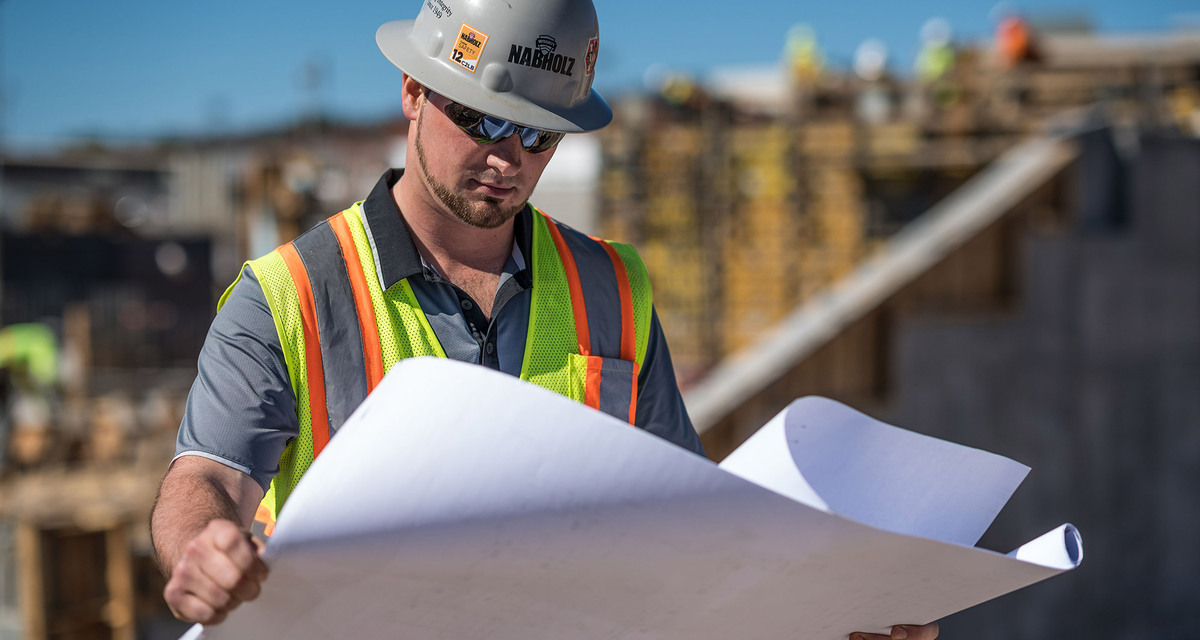

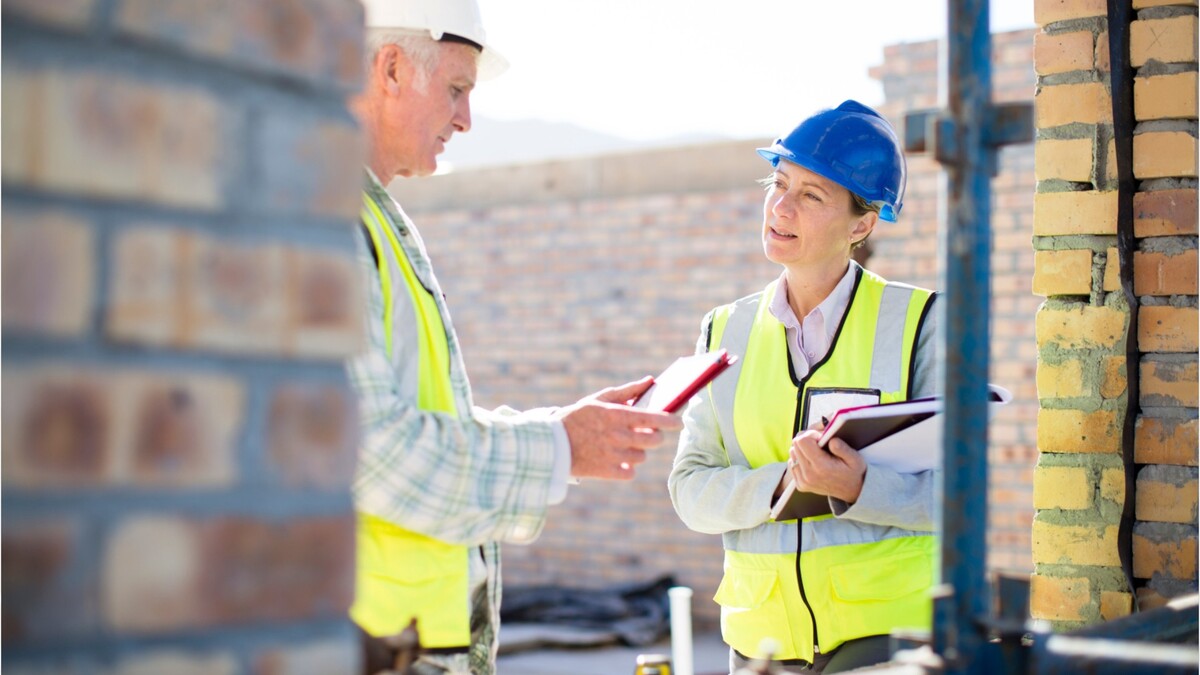
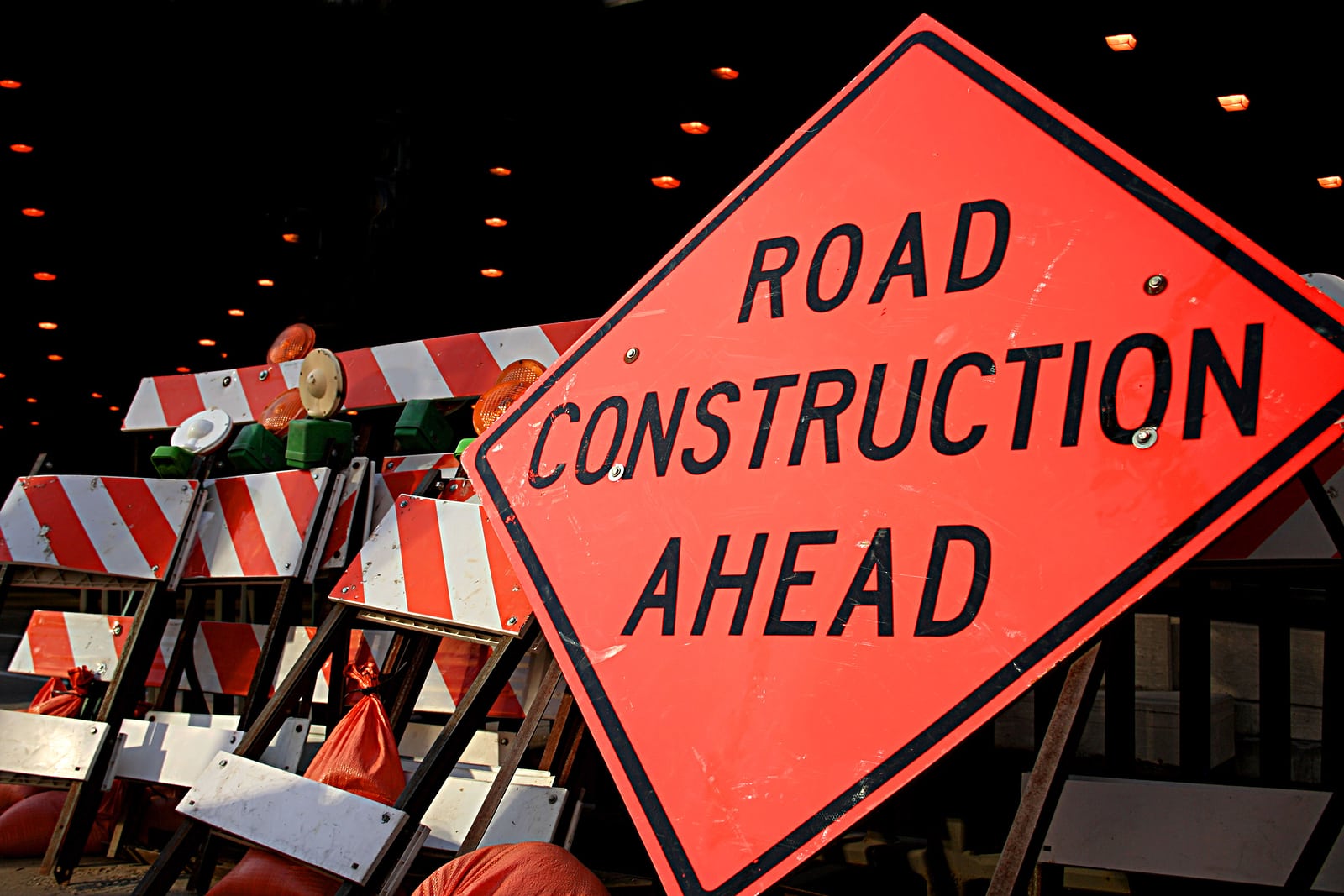
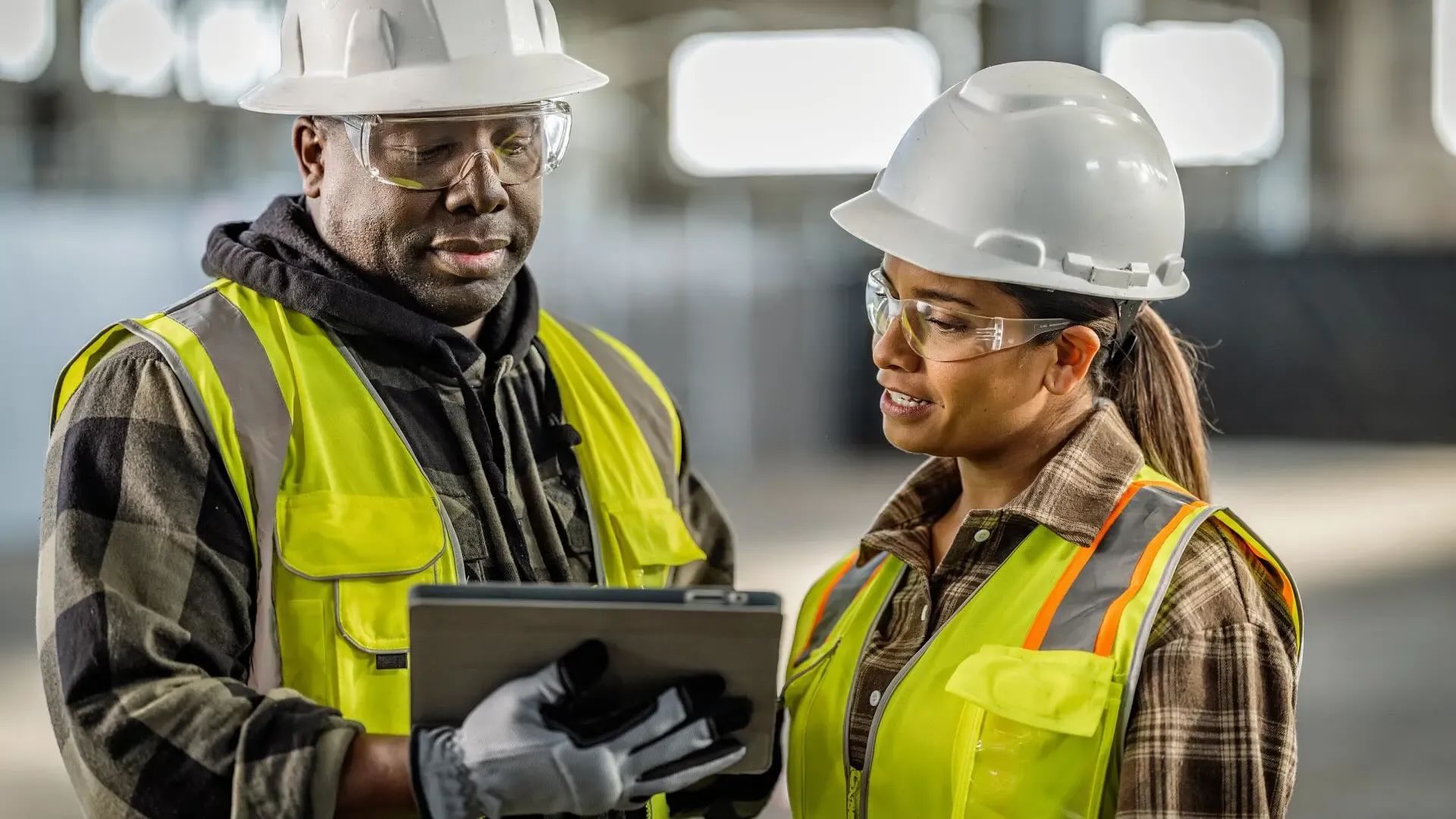
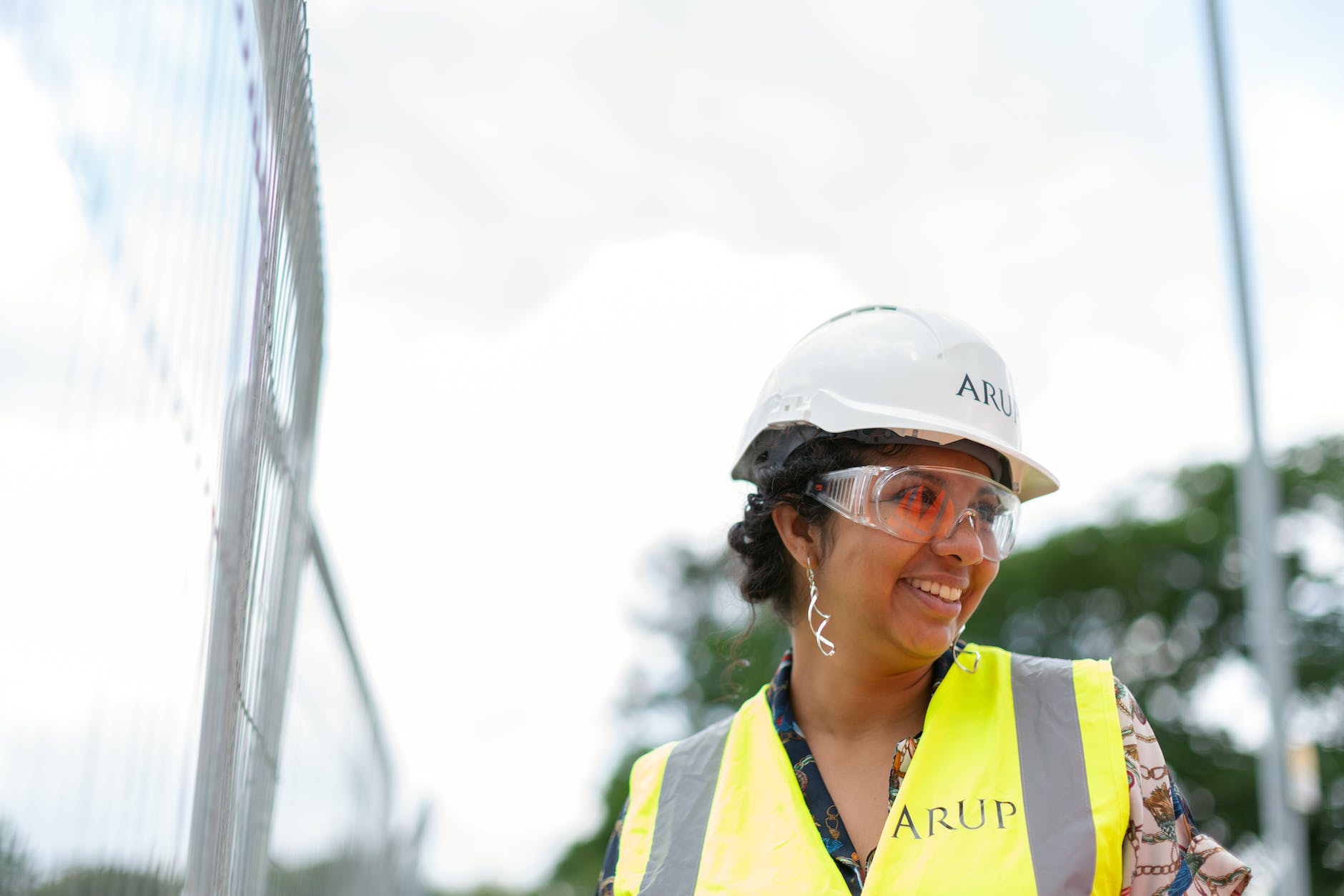

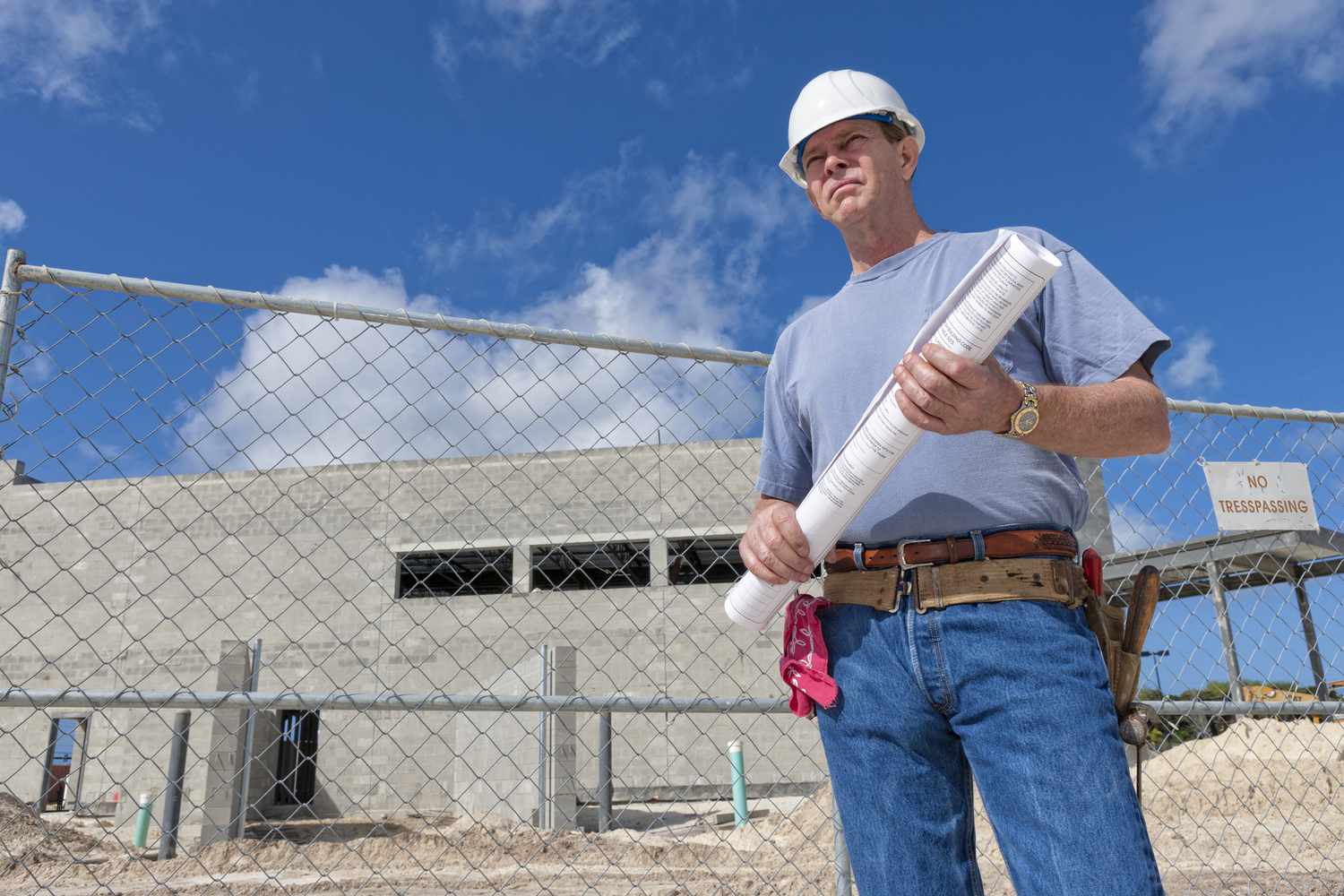
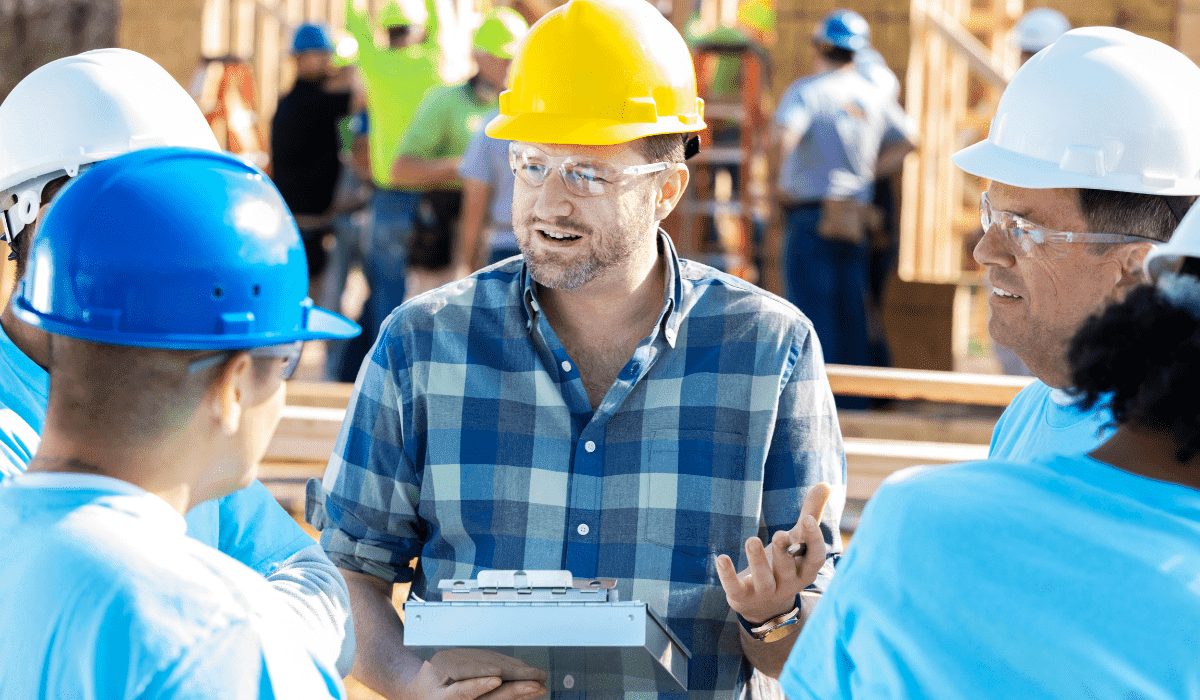



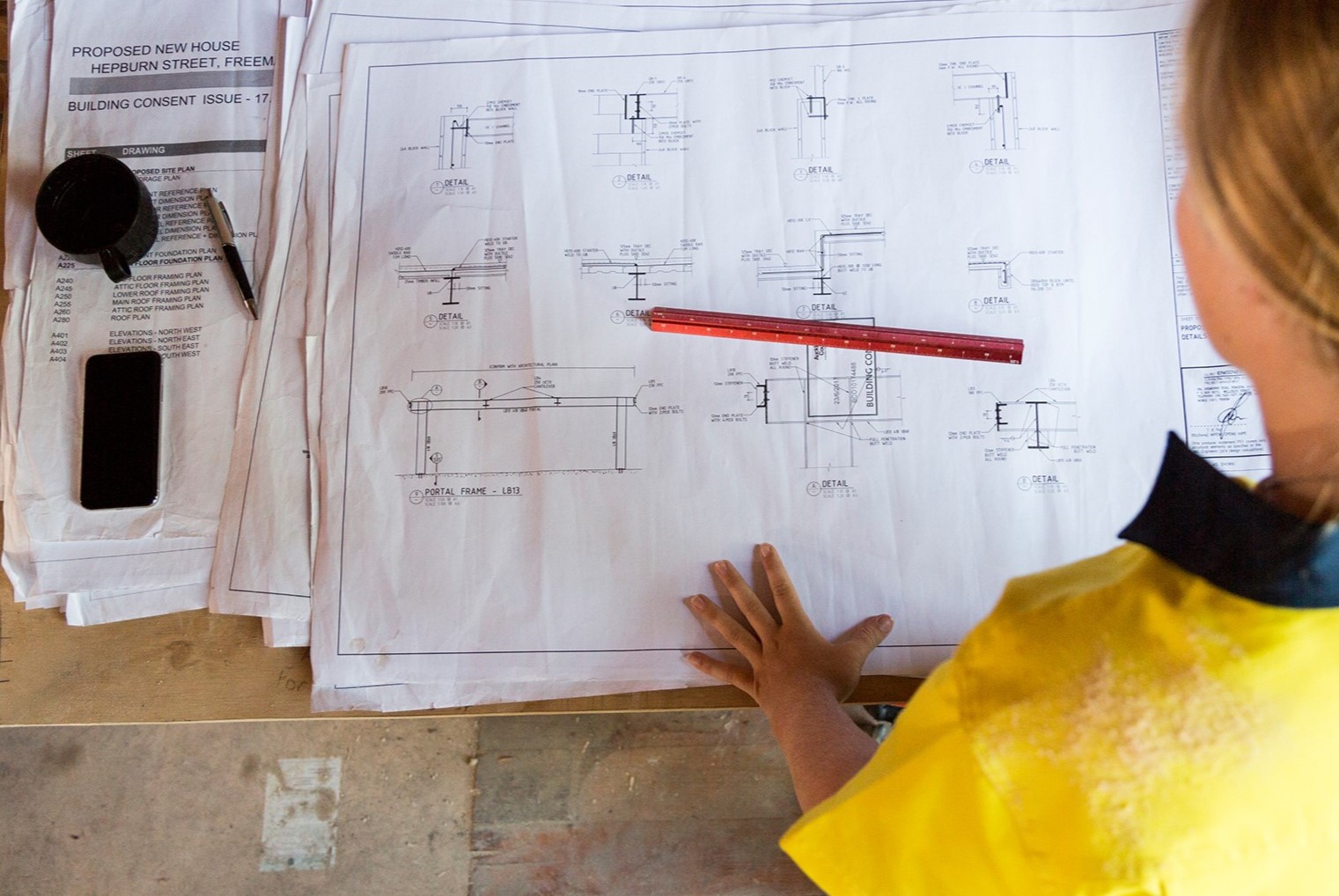

0 thoughts on “How To Become A Construction Inspector”